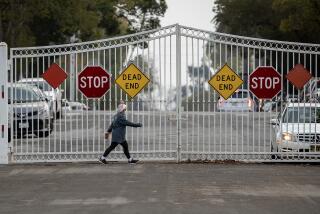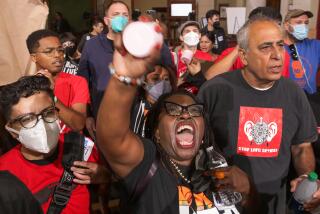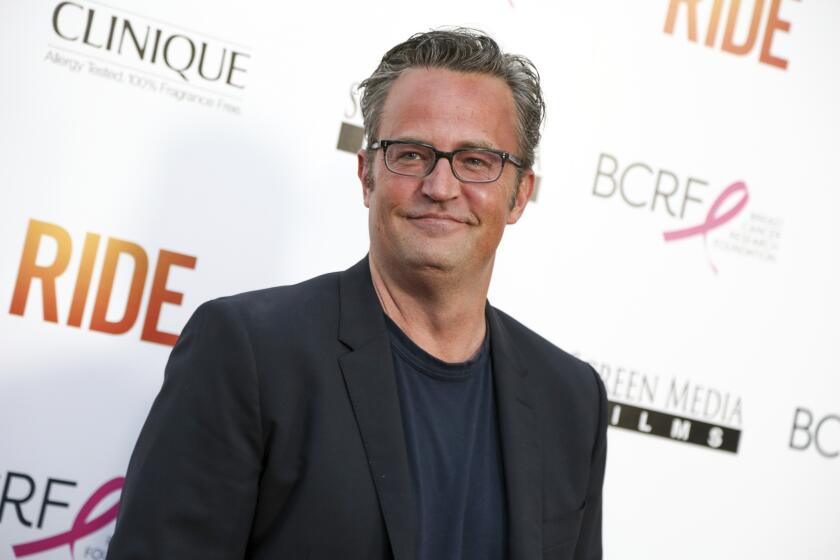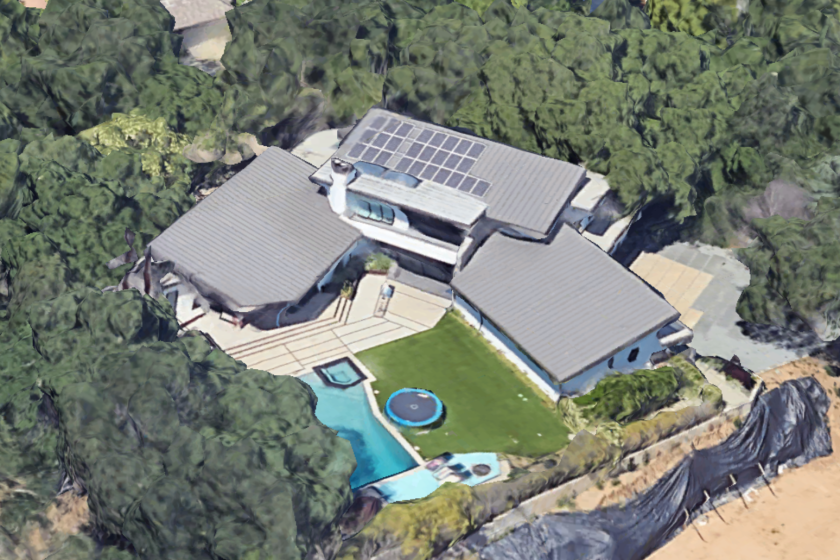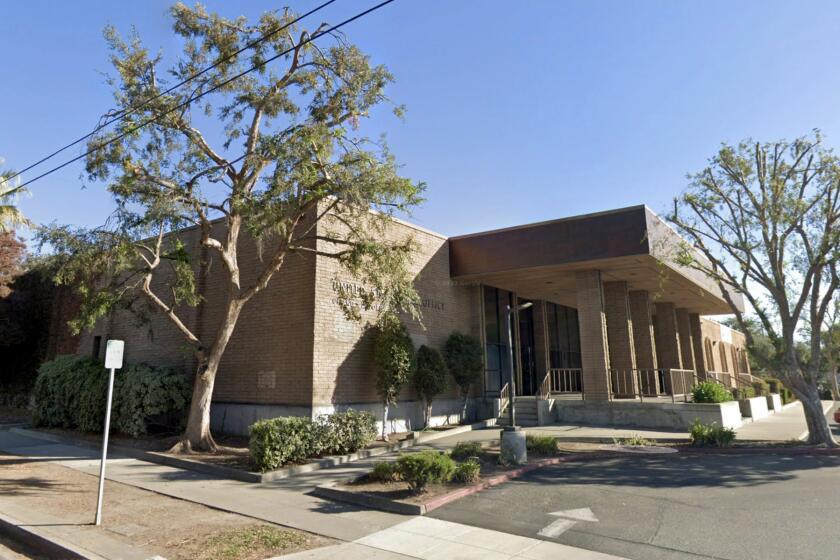NEWS ANALYSIS : No Shortage of Finger-Pointing at City Hall : Politics: Residents of riot-torn areas resent the conduct of civic leaders and are not inclined to listen to them. Bradley and Gates feud is blamed for part of the gridlock.
The skies above Los Angeles are no longer full of smoke, but the air is full of recriminations as the public blames the politicians and the politicians blame each other for responding ineffectually to last week’s civil upheaval and the conditions that spawned it.
Rather than pulling together, Mayor Tom Bradley, the City Council and Police Chief Daryl F. Gates are pointing fingers at one another in the same spirit of fractiousness that gridlocked city government in the days immediately after the videotaped police beating of Rodney G. King more than a year ago.
New evidence of the divisions surfaced Monday with Bradley conceding that he had not spoken directly to Gates in the 13 months leading up to the first night of the riots.
And as people in the ravaged parts of the city confronted the remains of their businesses and their neighborhoods, it was clear that they were putting little stock in anything their elected officials had to say.
“We don’t feel we can reach the power structure or that the power structure is reaching out to us. There is now a desire for new voices who are closer to grass-roots organizations instead of big business, corporate dollars and vested interests,” said the Rev. Kenneth Ulmer of the Faithful Central Baptist Church in South-Central Los Angeles.
“All of our elected officials--Gates, Bradley, (Gov. Pete) Wilson, the City Council--they’re all part of the system, and the system stinks,” said Bernice Young at her daughter’s beauty salon in a devastated section of Vermont Avenue.
In the contentious political climate, one elected official found himself denying a charge--that he pushed for police restraint the day before the riot broke out--before the issue had been raised.
“Allegations that I cut a deal with the police not to go (into the black community) are ridiculous,” Councilman Mark Ridley-Thomas said in an interview with The Times.
Ridley-Thomas acknowledged that he and a group of civil rights and black religious leaders met with two police officials on the day before the not guilty verdicts in the Rodney G. King case and expressed “concerns about a massive display of force by the department” should protests greet the jury’s findings.
Ridley-Thomas said police replied: “We will do what we have to do.”
Much of the criticism Monday was directed at Gates for leaving police headquarters to attend a political fund-raising event as the rioting broke out Wednesday night and for the failure of the department to respond faster to blood-curdling episodes of violence.
Bill Chandler, a spokesman for Bradley, said the mayor thought that Gates let his “personal ego” get in the way of the city’s call for federal troops to help quell the riot.
Cmdr. Robert Gil, an LAPD spokesman, responded: “I do know the chief’s feelings with federal troops: He considered it a slap at the civility of the city to not let (civilian forces) police it.”
He added that the chief believed “we had the situation under control” when federal troops were requested Friday.
For citizens such as Bernice Young, though, Gates let the city down. “He was fiddling while L.A. burned,” she said.
Much as the videotape of King’s beating focused attention on the police before the riot, the TV footage of truck driver Reginald O. Denny being kicked nearly to death by a mob raised new questions about the police during the riot.
“With all of Gates’ bluster and macho image, when the chips were down and that trucker was having the crap beaten out of him, the police were not there and Gates is going to have to answer for that,” City Councilman Zev Yaroslavsky said.
The embattled police chief was the object of more criticism Monday when the American Civil Liberties Union accused him of “dereliction of duty” and “abandoning his post” by going to the fund-raising event Wednesday evening as hostilities were breaking out.
The ACLU officials and their counterparts with the Southern Christian Leadership Conference and the Coalition for Police Accountability urged city officials to suspend Gates for 30 days and investigate his conduct.
Last week, when he was first questioned about attending the fund-raiser, Gates admitted he was taken by surprise by the sudden ferocity of the rioting.
But on Monday, he vehemently denied that he misjudged or failed to properly plan for civil disturbances that many expected to follow not guilty verdicts in the King case.
“My judgment was not wrong,” said Gates, pounding his hand on a chair to punctuate the point during an interview. “And I’m sick of answering that question. We were properly deployed.”
But Gates did not have an explanation when asked why the police were not dispatched as soon as scenes of white motorists being beaten in the streets were shown on live television. “I’ve asked for a report,” he said.
Gates said that if he had provided more of a patrol presence in key neighborhoods, his critics “would have accused me of starting a riot and being provocative.”
Besides Gates and the police, Bradley also came in for a heavy dose of criticism after his public acknowledgment that he had avoided direct communication with Gates for more than a year.
“It’s true that there was a state of hostilities that existed and that the chief and I did not talk,” Bradley said. “We simply weren’t talking. Nothing positive would have come from such a conversation. The relationship had been breached at that point.”
But the revelation that the city’s top elected official and chief law enforcement officer were not communicating did not sit well with a number of people.
“It is inexcusable, simply inexcusable,” Councilman Joel Wachs said. “I can’t fathom a mayor not speaking to the chief when the greatest responsibility of local government is to provide for safety of the public.”
Throughout South and South-Central Los Angeles, faith in that system seemed to have disappeared into the smoke.
“The community won’t be paying much attention to the conversations in City Hall because they’ll be suspicious and cynical about all of it,” said Ulmer of the Faithful Central Baptist Church. “There is a frustration with the political and judicial system that is almost frightening.”
Sipping a beer in the shade of a tree at the Chosen Few Motorcycle Club headquarters in South-Central, Floyd Hobdy, 53, compared City Hall to a home full of errant children.
“It’s like a family that’s not accountable for their kids,” he said. “They knew what was going on in this community, they knew tensions were high, but they didn’t give a damn.”
Times staff writer Frederick M. Muir contributed to this story.
More to Read
Start your day right
Sign up for Essential California for news, features and recommendations from the L.A. Times and beyond in your inbox six days a week.
You may occasionally receive promotional content from the Los Angeles Times.
